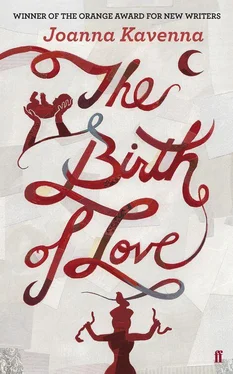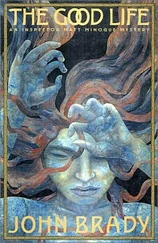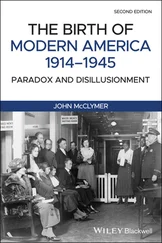*
Michael took a gulp of wine, pushed his greying hair from his temple. There was a lingering pause, while they hesitated, not wanting to curtail him. And he tried to fill it, but something — his shyness, native anxiety, or Sally would have told him it was stress — he didn’t know what it was, but something mangled his words. They waited, while he said, ‘Really … that was … I think that was what I meant …,’ and then they resumed.
*
‘I felt Semmelweis was an anti-hero,’ said Alice Mortimer, briskly, as if trying to show him how easy it was, just to talk, to speak and be understood. ‘There is a distance between us and him. I felt he was essentially unknowable, as a man.’ That set Michael trembling again, because he thought they might want him to answer, and he wiped his palms together, but Roger Annais was saying something about a fatal flaw. ‘… Something quite classical about his downfall. Perhaps that’s what you mean, Alice; he isn’t a modern character, as we now understand characterisation. He’s too archetypal. But, I should really let Michael reply …’
*
He was sweating though the room was cool, full of manufactured cold air. Like the other men, he had taken off his jacket, and undone his tie. As if they were saying, now we are among friends, that was what he thought it meant, all their loosened collars, their jackets slung over the backs of their chairs. With the trousers of his suit wrinkled, a smart suit he had been forced to borrow, never having had much need for one before, Michael saw their faces blurring and re-forming, and he tried to say, ‘I rather enjoy … hearing all of your opinions … For a long time I lacked readers …’ He wiped his temple again, and because he was floundering, Sally stepped in.
‘Michael is very tired. He has been working on this book for many years. He is a little overwhelmed, I believe.’
They nodded and murmured back at her. And Michael breathed more easily, because Sally had granted him a respite. So he slouched a little in his seat, and took another slug of wine.
*
He only had tenuous impressions, warped by his nerves. Peter Kennedy, head of Giraffe Books, the imprint which had finally published him, was leaning towards him — they were all leaning towards him. He was embarrassed to discover that they were trying to encourage him. So he leaned forward politely because Peter Kennedy was saying, ‘I’d like to propose a toast anyway. To The Moon .’
*
Michael tried to smile, and while Peter added a few more words of praise he pushed his grey hair back, and fiddled with his cuffs, and there was a general murmur as they all lifted their glasses. And Sally said, ‘I am just so glad you decided to publish it, Peter.’
*
Under the table, Michael wiped his palms together. The talk continued; he was glad when the debate surged around him. And while they talked, he saw the room was filled with soft afternoon light; furtively he watched Roger Annais marking his words with a beat beat of his hands and Arthur Grey nodding twice in return, and there was someone else saying, ‘I’m writing to The Times about Lamott today; anyone want to sign it?’
Yes, they said. ‘Email me the letter when you’ve drafted it,’ said one, and another said, ‘Don’t you want to wait, to see if there is any more fuss?’
‘No, I think I’d like to speak now. I know my opinion already.’
‘One can only hope it will strike a general chord.’ Roger Annais marked his words with a beat beat of his hands and Michael caught Arthur Grey staring towards him — their eyes met, and Arthur Grey half-smiled, half-nodded, then looked away.
*
One can only hope, thought Michael. For them, there was an intellectual point to be made, a debate for the letters pages. Beyond him, a controversy raged, something he did not understand. More important than his book, something which reverberated widely. For him, there was the business of the reviews-this sense of judgement, of a public reckoning — perhaps this was why his hand kept trembling when he lifted his glass, why he was drinking such a steady stream of wine. And Sally was pressing his arm, to let him know she was there. ‘It’s hard, the first book,’ he had heard her saying earlier, to a friend of hers. Into her mobile, she had said, ‘Especially at his age.’
*
There were reasons why you became a writer. Diffidence, a fear of social events. An affinity for solitude. Perhaps even misanthropy. You had to like sitting alone in a room. You had to be able to conjure your best thoughts and phrases alone. It seemed to Michael that some people were writers because they wrote better than they talked. He talked very badly, and had never — until now — been asked about his books. He had hardly been called upon to justify or explain them. He had not minded this much; he thought such explanations would be redundant anyway. How could you express something more plainly in a hasty phrase than in a meticulously worked sentence? Surely you were more likely to traduce yourself, to expose all the inner contradictions of your crafted prose? Yet recently they had been asking him to parse his phrases. They had been saying, ‘When you wrote … what did you mean?’ ‘When you said this … what did this mean?’ Sometimes he tried to explain that it was not him, it was a narrator. ‘But you wrote the narrator,’ they said, which was true enough. ‘But I am not the narrator.’ ‘But what did you mean when you made him say …?’ ‘Can you be more plain?’ they asked, but he wasn’t sure he could. He had become a writer so he could avoid his kind, so he could evade the false intimacy of the office and days spent in the company of others. He had been a solitary child; his own mother had told him so. ‘People need you more than you need them,’ she once said. In youth he suffered through a few office jobs; he shuffled papers and was ignored by his colleagues — he had been too quiet to interest them, so they left him alone. He dragged himself through these jobs and then he spent years as a language teacher. I am, you are, he is. We are, they are. John likes to go to the cinema. Do you like to go to the cinema? Then he got a job teaching creative writing at Hendon College of Further Education, when he simply wanted to be alone with the thoughts in his head. He wanted to live within these thoughts; they were compelling enough to him. If he could have made a living from writing, he would perhaps have never left his room. He might have been a true recluse, his desk turned away from the window, oblivious to everything except the page. His pen moving through space. The hours moving onwards.
*
‘Sally tells me you have spent years writing?’ Arthur Grey was asking, as if he had read Michael’s mind. It was a benevolent enquiry, he heard the kindness in the man’s voice, and so he said, ‘Yes, most of my life …’
‘You were struggling? I mean … to earn money?’
‘I did odd jobs … But it was not … very elegant …’
‘Michael has been rather ill,’ said Sally, protectively. ‘He wore himself down writing and — now — worrying.’
‘It is the uncertainty,’ said Michael. ‘The sense that one’s words … are not one’s own; that they might mean in ways one … didn’t expect … It was not my intention … all of this …’
‘Of course it wasn’t. Art was your intention,’ said Arthur Grey. ‘But I interrupted you, you were saying …’
‘I was trying to write about conviction …’ — and the table nodded — ‘… about those who propose something that is not generally thought, and how they are dealt with. About those who are convinced of what they say, to the point that they continue to speak, even when everyone has turned away. And I felt that … all things being unknowable, all real things, all real mysteries, then … well, who can stand, really, and say, “I know; I understand”? I wanted to write … something about this … impulse … to tell others what is true …’
Читать дальше












